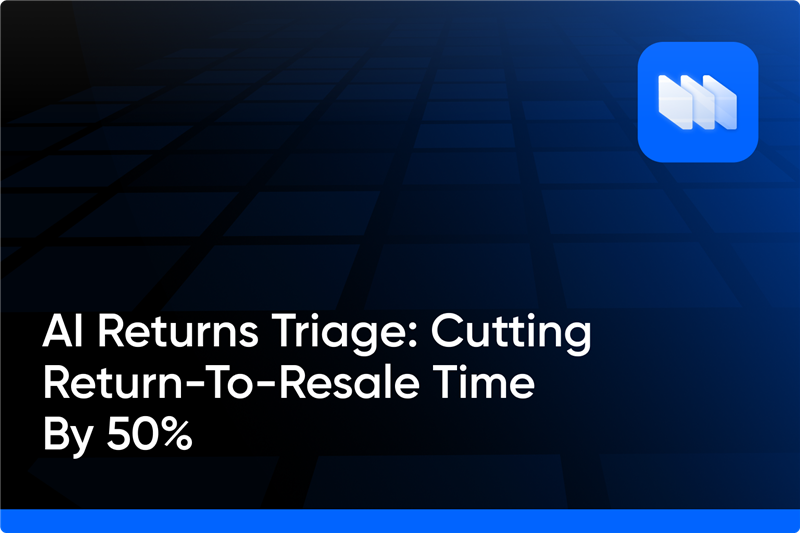AI-First Customer Service: What 2025 Means for Your Support Team
For years, "AI in customer service" conjured images of clunky chatbots and frustrating IVR menus. But if you’re still thinking that way, you’re stuck in the past. 2025 marks a pivotal moment, the true dawn of AI-First customer service, where artificial intelligence isn't just a tool; it's the foundational layer of your support operations.
What does "AI-first" truly mean? It means AI is the primary interaction point for the vast majority of customer inquiries. It handles routine tasks, provides instant resolutions, and even proactively anticipates needs. Human agents, far from being replaced, evolve into strategic problem-solvers, managing complex escalations and focusing on the empathetic, nuanced interactions that only humans can deliver. This isn't just a trend; it's an inevitable shift, and understanding its implications is critical for any business looking to thrive.
Beyond the Script: How Generative AI Reshapes Every Interaction
The rapid advancements in generative AI (GenAI) are driving this revolution, moving customer service far beyond rigid scripts and predefined answers. By 2025, GenAI will reshape every customer interaction in profound ways:
A. Hyper-Personalization at Scale:Gone are the days of generic, segmented personalization. GenAI analyzes vast amounts of data—customer history, sentiment, real-time context, and even individual communication styles—to craft truly unique, empathetic, and on-brand responses. Imagine an AI understanding a customer's frustration and automatically adjusting its tone to be more reassuring, or recalling a previous interaction to offer a perfectly tailored solution. This 1:1 personalization at scale is no longer a dream; it's a rapidly approaching reality.
B. Multimodal & Emotionally Intelligent AI Agents:By 2025, AI agents will transcend text-based interactions. Multimodal AI will enable them to understand and respond across various formats: interpreting images for troubleshooting, analyzing vocal tone for emotional cues, and even processing video for complex support scenarios. This deepened understanding allows AI to detect subtle nuances like frustration, confusion, or satisfaction, enabling them to adapt their communication style and offer genuinely empathetic responses, a significant leap from the "robot voice" of yesterday.
C. Proactive & Predictive Support:The future of customer service is anticipating needs, not just reacting to them. AI, armed with predictive analytics, will identify potential issues before they even arise. Think of an AI system flagging a customer at high risk of churn, or proactively notifying customers about a service interruption before they flood your contact center. This proactive support isn't just about efficiency; it's about building trust and loyalty by solving problems customers didn't even know they had yet.
Future & AI Lens: By 2025, AI-powered systems will move beyond just "predicting" issues to "autonomously resolving" common, low-risk problems without human intervention. Imagine an AI detecting a potential account issue, verifying it against established protocols, and fixing it – then sending a proactive notification to the customer, stating "We noticed X, and we've already resolved it for you." This "invisible" customer service, where problems are solved before they're even perceived by the customer, will be the new gold standard, elevating brand perception and freeing up immense resources.
The Evolved Agent: Human-AI Collaboration Takes Center Stage
The narrative that AI will replace human agents is a gross oversimplification. In 2025, AI isn't a competitor; it's the ultimate co-pilot, empowering support teams to achieve unprecedented levels of excellence.
A. AI as an Agent's Co-pilot:For customer service agents, AI becomes an indispensable assistant. Imagine an AI providing real-time suggestions for responses during a chat, instantly pulling up relevant knowledge base articles, or summarizing lengthy customer histories in seconds. This agent augmentation leads to:
- Faster resolution of complex issues, as agents have immediate access to comprehensive information.
- Reduced training time for new agents, as AI guides them through common scenarios.
- Consistent service quality across the entire team.
B. Upskilling and Strategic Focus:With AI handling routine inquiries, human agents can elevate their focus to what they do best:
- Complex Problem-Solving: Tackling highly nuanced, multi-layered issues that require creative thinking and critical judgment.
- Relationship Building: Engaging in empathetic, emotionally charged conversations that build deep customer loyalty.
- Strategic Initiatives: Participating in service improvement projects, analyzing trends, and contributing to product development based on customer feedback.The role of a customer service agent will transform into that of a "super-agent," highly skilled, technologically adept, and focused on high-value interactions. This also ushers in the rise of specialized roles like "AI Trainers" or "Prompt Engineers" within support teams, dedicated to refining and optimizing AI models.
The Tangible Benefits: Why "AI-First" Is a Business Imperative
The shift to an AI-first model isn't merely about embracing new tech; it's about unlocking tangible business benefits that drive growth and customer loyalty.
A. Unprecedented Efficiency & Cost Savings:
- Automated Deflection: AI can resolve a significant percentage of routine inquiries without human intervention, drastically reducing inbound volume.
- 24/7 Availability: AI operates around the clock, ensuring customers get instant support anytime, anywhere, without needing a larger human workforce.
- Reduced AHT: Faster resolutions mean lower operational costs per interaction.
B. Skyrocketing Customer Satisfaction (CSAT):
- Instant Gratification: Customers receive immediate responses and faster resolutions, meeting their ever-increasing expectations for speed.
- Personalized & Consistent Experiences: AI ensures every interaction is tailored and on-brand, building a seamless customer journey.
- Seamless Handoffs: When an AI cannot resolve an issue, it provides the human agent with a complete context, eliminating frustrating repetitions for the customer.
Navigating the Road Ahead: Challenges and Considerations
While the benefits are clear, adopting an AI-first strategy isn't without its hurdles. Businesses must proactively address:
A. Data Privacy & Security: AI systems thrive on data. Ensuring robust data protection, adherence to regulations like GDPR, and transparent data usage policies are paramount to building customer trust.B. AI Bias & Ethical Use: AI models are only as unbiased as the data they're trained on. Organizations must actively monitor for and mitigate algorithmic bias to ensure fair and equitable service for all customers.C. Integration Complexity: Seamlessly integrating new AI solutions with existing CRM, ERP, and legacy systems can be technically challenging but is crucial for a unified customer view and efficient operations.D. Employee Adoption & Training: Overcoming potential resistance from human agents and providing comprehensive training on how to effectively collaborate with AI tools is vital for successful implementation.
Your Support Team in 2025: A Vision of Empowered Excellence
By 2025, customer service will be unrecognizable from just a few years prior. Your support team won't be bogged down by repetitive inquiries; they'll be empowered strategic partners, leveraging AI to deliver truly exceptional, empathetic, and proactive support. The blend of human intuition and AI efficiency will not only meet customer expectations but consistently exceed them, turning every interaction into an opportunity for loyalty and growth. The time to plan your AI-first customer service strategy is now.
Ready to build your AI-First customer service strategy for 2025? Magentic specializes in designing and implementing intelligent AI solutions that transform support operations, empower your team, and deliver exceptional customer experiences. Partner with us to stay ahead of the curve.
FAQ
- Q1: What does "AI-first customer service" mean?
- A1: "AI-first customer service" means that artificial intelligence is the primary point of contact for customer inquiries, handling routine tasks, providing instant responses, and performing proactive support. Human agents then manage more complex, sensitive, or strategic issues that require empathy and critical thinking, working in close collaboration with AI tools that augment their capabilities.
- Q2: Will AI replace human customer service agents by 2025?
- A2: No, rather than replacing them, AI will profoundly transform the role of human agents by 2025. AI will handle the high-volume, repetitive, and rule-based tasks, freeing up human agents to focus on complex problem-solving, building deeper customer relationships, and addressing nuanced issues that demand human empathy, creativity, and strategic thinking. Their roles will evolve into that of "super-agents," significantly empowered and made more efficient by AI.
- Q3: How will generative AI impact customer support by 2025?
- A3: Generative AI (GenAI) will have a profound impact on customer support by 2025. It will enable hyper-personalized conversations by understanding individual customer context, craft sophisticated and human-like responses, generate tailored content (such as personalized FAQs, troubleshooting guides, or even follow-up emails), and progressively handle more complex issues autonomously. For human agents, GenAI will serve as a powerful co-pilot, speeding up resolutions, improving response quality, and providing real-time insights across all communication channels.
.png)
.png)






.png)